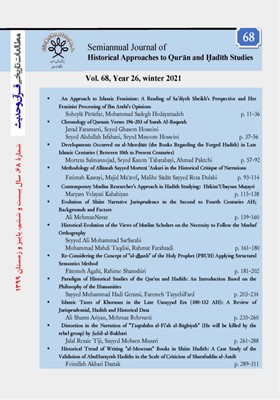Islamic Taxes of Khorasan in the Late Umayyad Era (100-132 AH): A Review of Jurisprudential, Hadith and Historical Data
Subject Areas :ali shamsariyan 1 , mehrnaz behruzi 2
1 - Ph.D. Student of Islamic History, Central Tehran Branch, Islamic Azad University, Tehran, Iran.
2 - Assistant Professor, Department of History and Archeology, Central Tehran Branch, Islamic Azad University, Tehran, Iran.
Keywords: Khorasan, Islamic teachings, Ahl Dhimah, Tax Rules, The Umayyad,
Abstract :
The issue of finance is one of the most important and significant issues in history. With the rise of Islam and based on the teachings of the Qur'an and the tradition of the Prophet (PBUH), new regulations ruled over the economic affairs of Islamic society. With the beginning of the conquest and expansion of the Muslim realm, they faced new issues that paved the way for important changes in society. The main question of this study is to study the Islamic taxes of Khorasan during the Umayyad period based on jurisprudential, hadith, and historical data. Since economic rulings are the most important governmental rulings and the Umayyad rule is one of the most important dynasties claiming Islam in history, so in this study as a case study of economic rulings issued by Umayyad rulers in Khorasan in the period of 100-132 AH, has been examined and evaluated in accordance with Islamic teachings.
_||_


